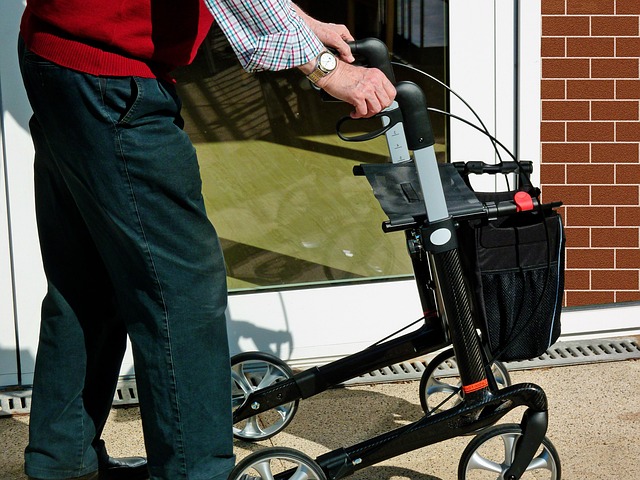Career in Caregiving for English Speakers in Brunswick
Individuals residing in Brunswick and proficient in English may consider engaging in caregiving roles. This involves understanding the responsibilities and daily tasks associated with caregiving. Additionally, it is essential to examine the conditions within caregiving environments, which can significantly impact both caregivers and those they assist.

The caregiving profession in Brunswick presents unique opportunities for English speakers looking to build a rewarding career while making a meaningful difference in people’s lives. As part of Lower Saxony, Brunswick (Braunschweig) has seen growing demand for qualified caregivers who can communicate effectively across language barriers. This career path offers not only stable employment but also the chance to develop professionally in a field that values compassion, cultural sensitivity, and strong communication skills. English-speaking caregivers fill an important niche in the local healthcare landscape, particularly in facilities serving international residents or those requiring specialized care.
Understanding the Role of Caregivers in Brunswick
Caregivers in Brunswick perform essential functions that extend beyond basic assistance with daily living activities. Their responsibilities typically include monitoring health conditions, administering medications, assisting with mobility, providing emotional support, and coordinating with healthcare professionals. English-speaking caregivers often serve as cultural bridges, helping international patients navigate the German healthcare system while ensuring their specific needs are communicated clearly to German-speaking medical staff. The profession requires both technical healthcare knowledge and strong interpersonal skills, as caregivers must build trust with patients while maintaining professional boundaries.
Qualifications and Training Requirements
To work as a caregiver in Brunswick, certain qualifications are necessary regardless of language background. These include formal education in nursing or caregiving, which may involve completing a recognized training program in Germany or having foreign credentials officially recognized. The recognition process for international qualifications involves assessment by German authorities to determine equivalence to German standards. Additionally, caregivers must demonstrate basic German language proficiency, typically at the B1 level or higher, even if their primary role involves English communication. Continuing education is also important, with many employers offering specialized training in areas such as dementia care, palliative care, or rehabilitation support.
Insights into Caregiving Environments and Conditions
Caregiving environments in Brunswick vary widely, offering different working conditions and career trajectories. Hospital settings typically provide more structured environments with clearly defined roles and shift patterns. Residential care facilities offer more consistent patient relationships but may require adapting to institutional routines. Home care services allow for more personalized care delivery but involve traveling between clients and adapting to different home environments. Working conditions generally include shift work, which may include nights and weekends, physical demands from patient handling, and emotional challenges from forming bonds with patients who may have declining health. However, many caregivers find significant fulfillment in these environments despite the challenges.
Language Skills and Their Importance in Caregiving
For English speakers in Brunswick’s caregiving sector, language abilities represent a valuable professional asset. Bilingual caregivers can facilitate communication between international patients and German healthcare systems, reducing misunderstandings and improving care quality. This linguistic bridge becomes particularly important during medical emergencies or when explaining complex treatment plans. While English proficiency opens doors to working with international clients, learning German remains essential for professional integration. Most employers require at least intermediate German skills (B1-B2 level) for daily workplace communication, documentation, and team collaboration. Many facilities offer language support or training programs to help foreign caregivers improve their German skills while working.
Employment Opportunities and Job Search Strategies
The caregiving sector in Brunswick offers diverse employment pathways for English speakers. Major employers include municipal hospitals, private clinics, retirement homes, rehabilitation centers, and home care agencies. Many facilities actively seek multilingual staff to serve their diverse patient populations. Effective job search strategies include registering with the Federal Employment Agency (Bundesagentur für Arbeit), exploring specialized healthcare recruitment agencies, attending industry job fairs, and building professional networks through volunteer work or internships. Digital platforms like StepStone and Indeed regularly list caregiving positions, sometimes specifically noting language requirements. Professional networking through organizations like the German Professional Association for Nursing Professions can also provide valuable connections.
Cultural Adaptation and Integration Challenges
Working as an English-speaking caregiver in Brunswick involves navigating cultural differences in both workplace practices and patient expectations. German healthcare environments typically emphasize punctuality, procedural adherence, and hierarchical structures. Documentation standards are particularly rigorous, requiring precise attention to detail. For foreign caregivers, adapting to these cultural norms while maintaining their own strengths can be challenging but rewarding. Beyond workplace culture, caregivers must also understand how cultural factors influence patient behavior and preferences regarding care. Successful integration often depends on developing intercultural competence, maintaining an open mindset, and finding supportive colleagues who can provide guidance during the adjustment period.
Career Development and Advancement Possibilities
The caregiving profession in Brunswick offers multiple pathways for career advancement. With experience and additional qualifications, caregivers can progress to specialized roles in areas such as geriatric care, psychiatric nursing, or pediatric care. Management positions become accessible with leadership training and demonstrated expertise. Further education opportunities include advanced nursing degrees, specialized certifications, or training in complementary therapies. Many employers support professional development through flexible scheduling and tuition assistance programs. For English speakers, career progression may include roles that specifically leverage language skills, such as coordinating care for international patients or training other staff in cross-cultural communication.
Through dedication to professional growth and willingness to adapt to the German healthcare environment, English-speaking caregivers can build fulfilling, stable careers in Brunswick while making meaningful contributions to patient care and cross-cultural understanding in the healthcare sector.




